網上半月譚
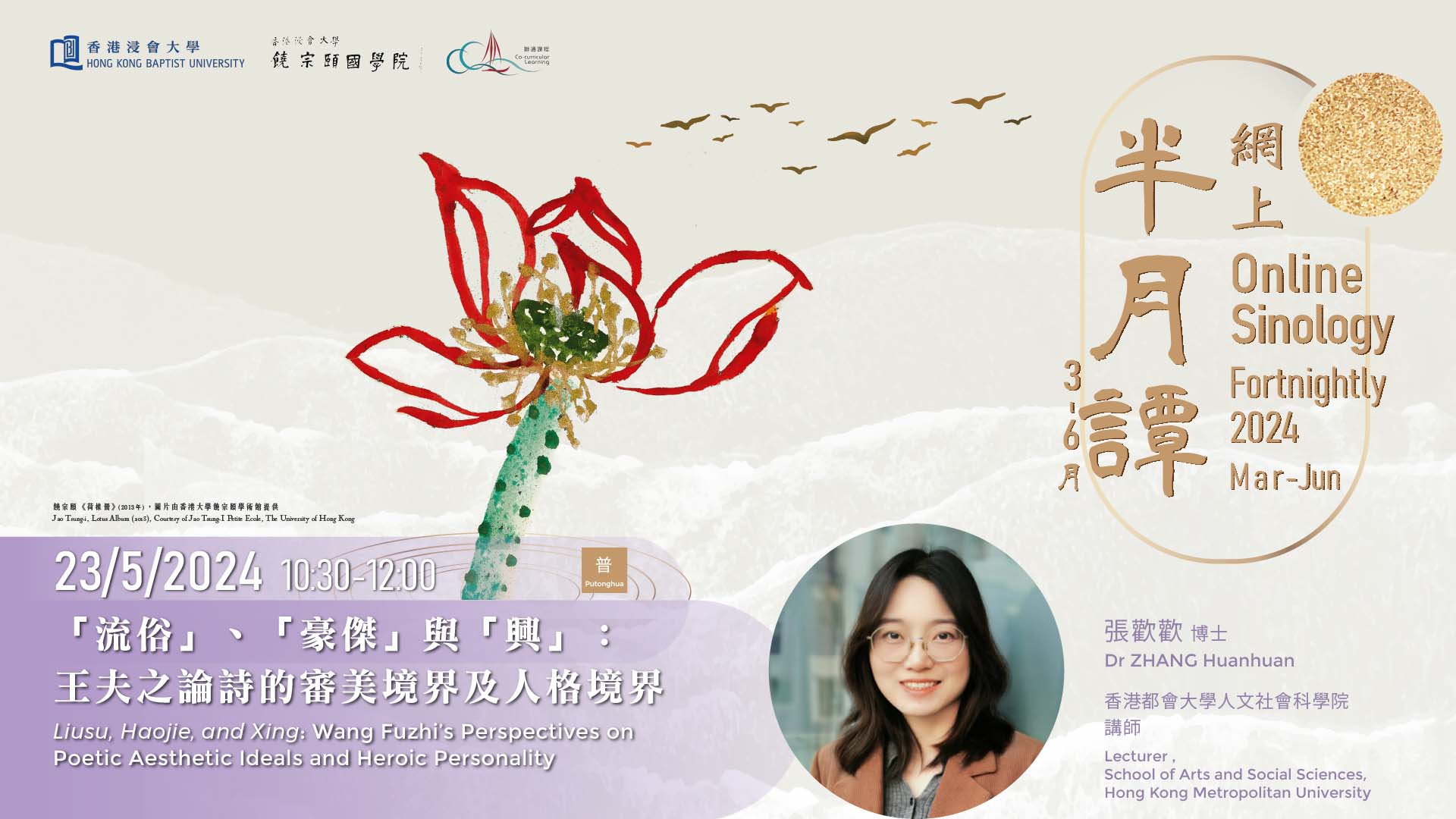
「流俗」、「豪杰」与「兴」:王夫之论诗的审美境界及人格境界
2024 | 80 mins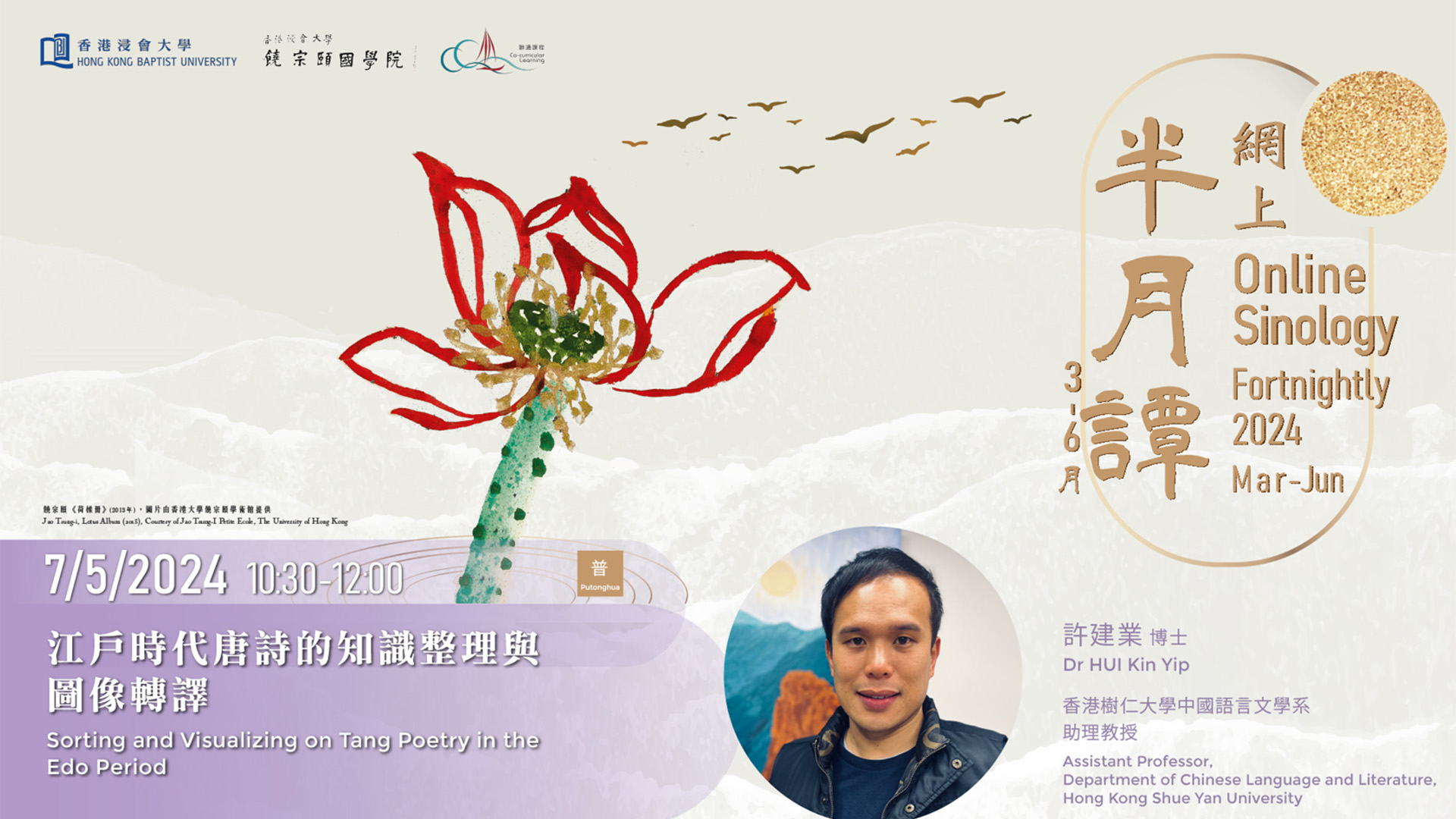
江户时代唐诗的知识整理与图像转译
2024 | 99 mins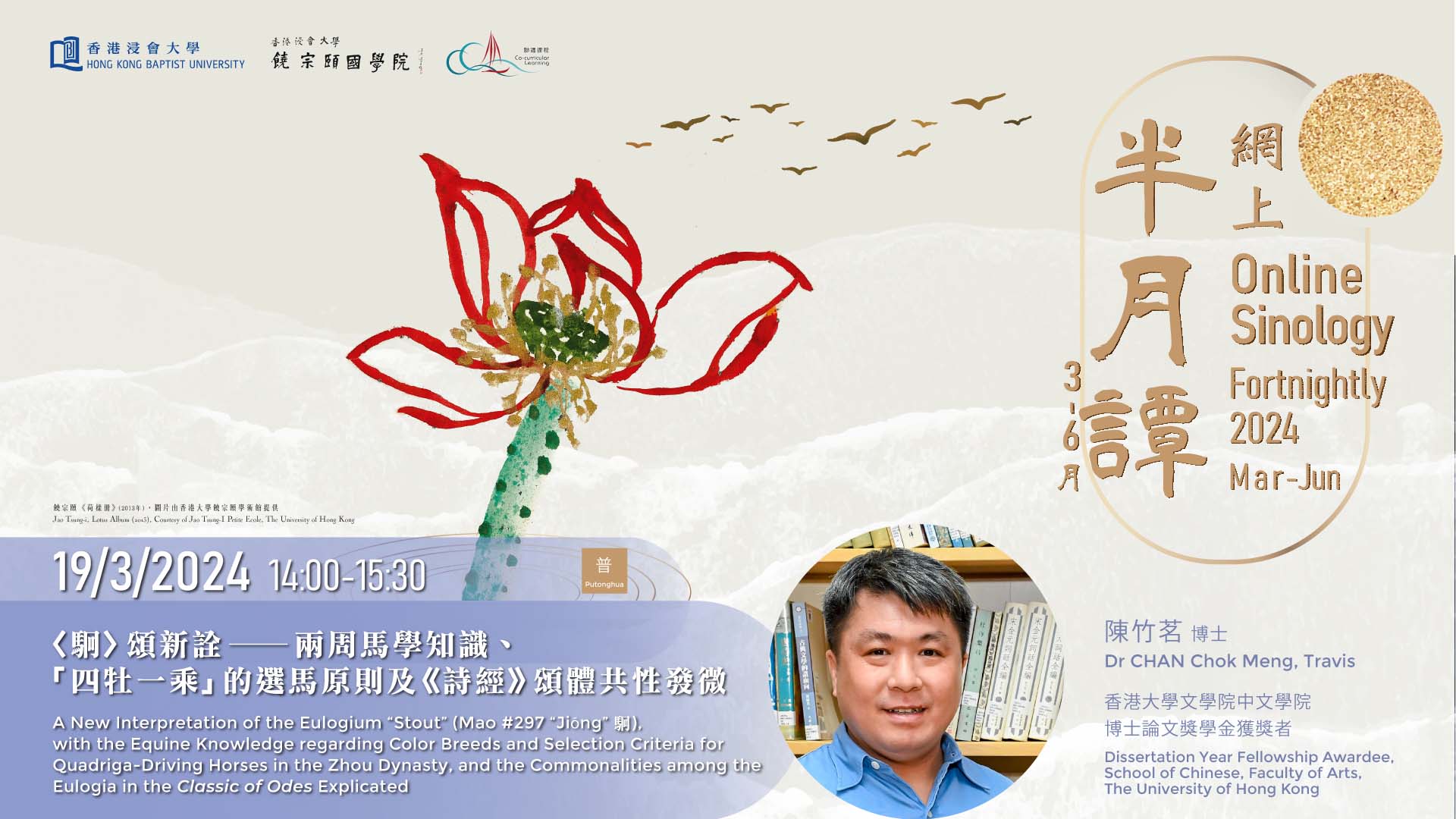
〈駉〉颂新诠——两周马学知识、「四牡一乘」的选马原则及《诗经》颂体共性发微
2024 | 112 mins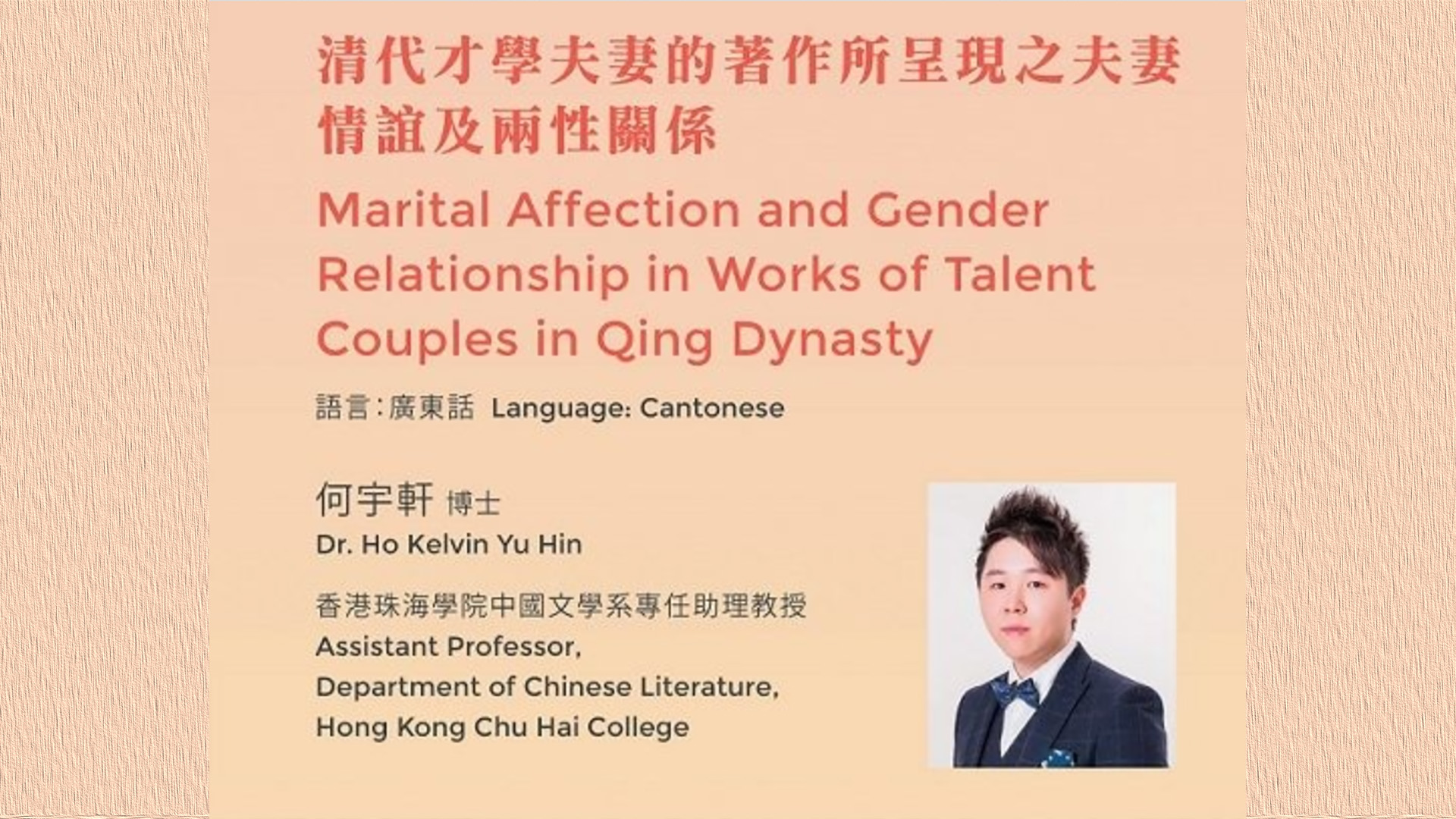
清代才學夫妻的著作所呈現之夫妻情誼及兩性關係
2023 | 93 mins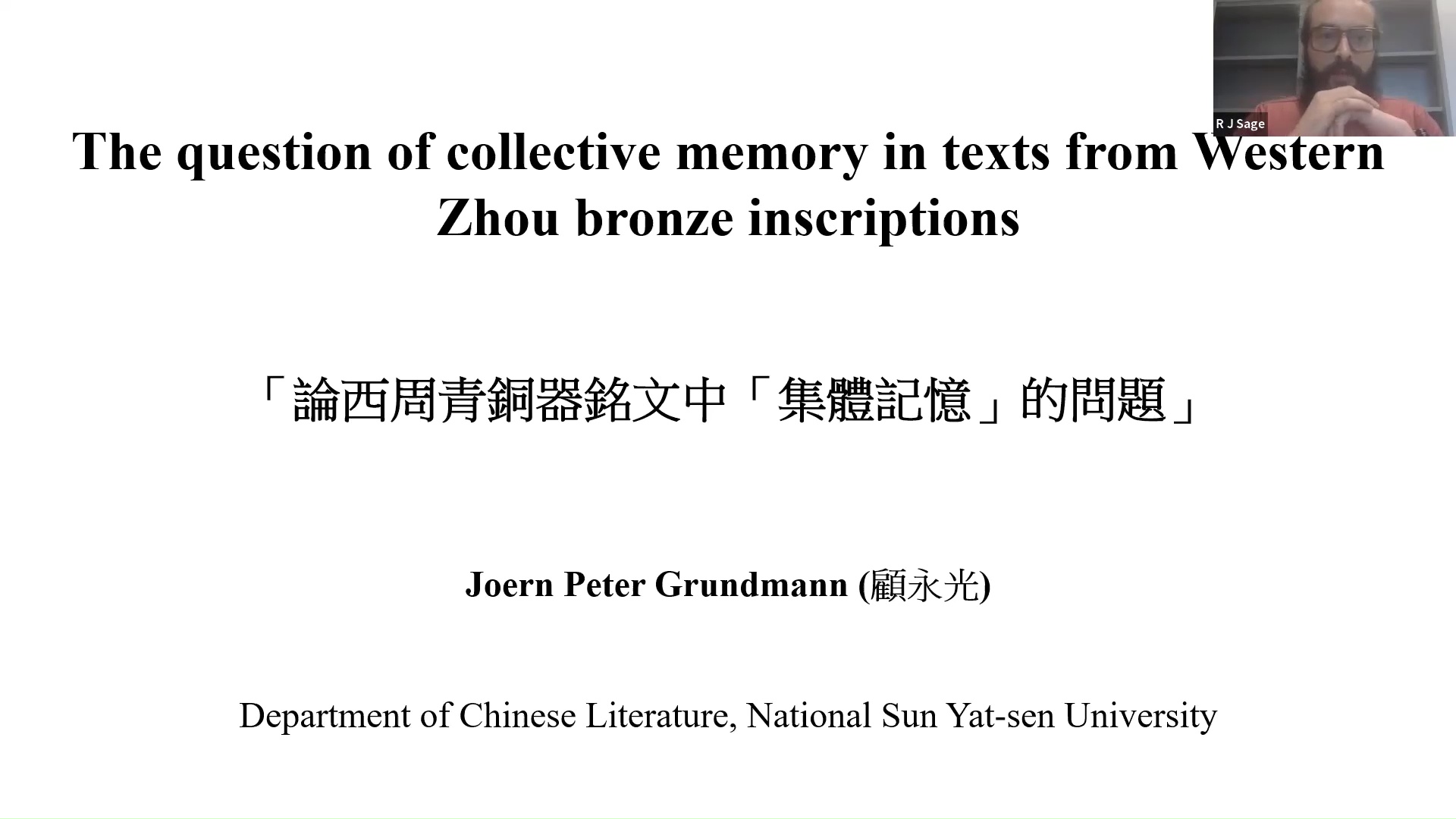
The Question of Collective Memory in Texts from Western Zhou Bronze Inscriptions
2023 | 81 mins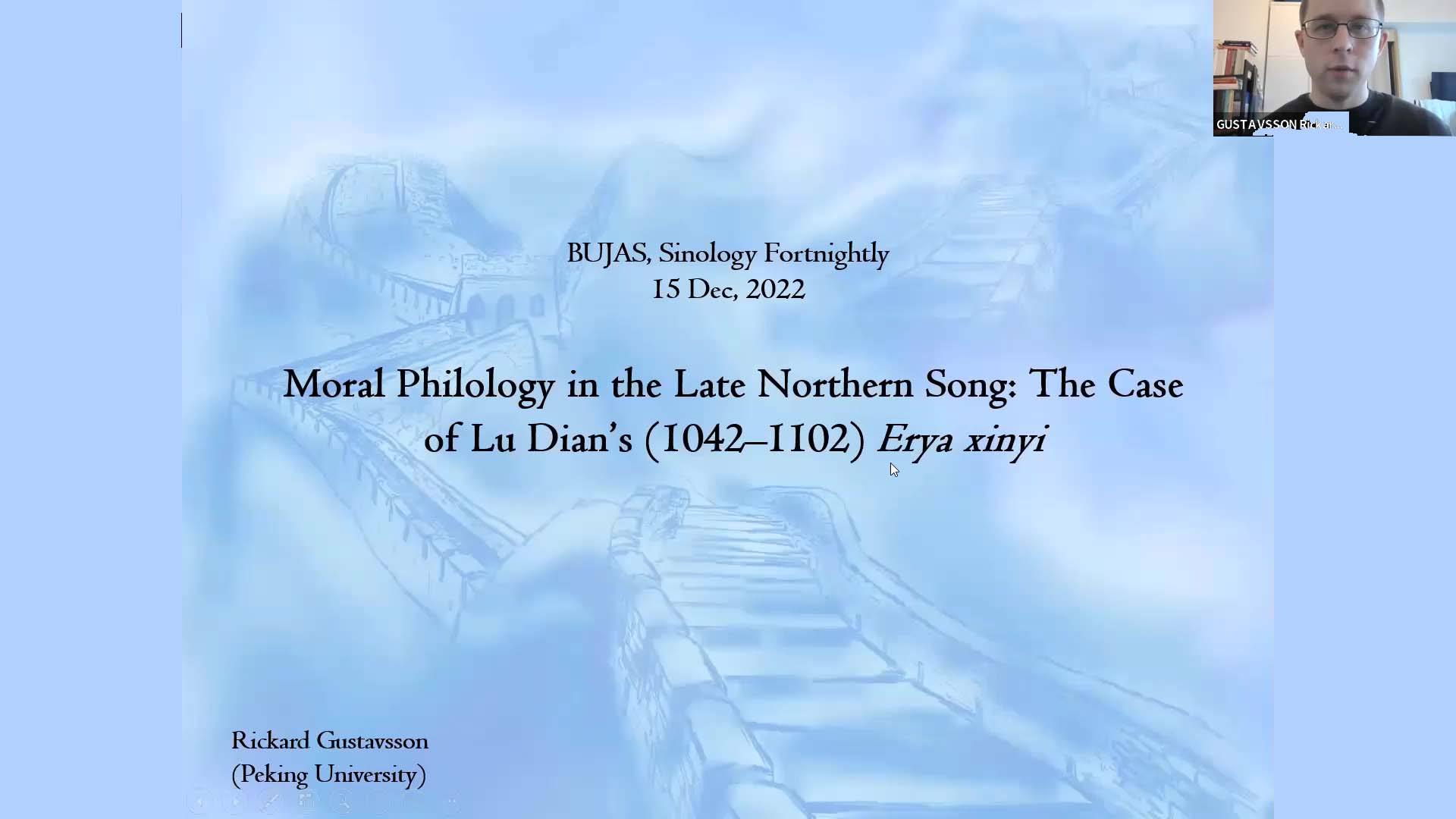
Moral Philology in the Late Northern Song: The Case of Lu Dian's (1042–1102) Erya xinyi
2022 | 87 mins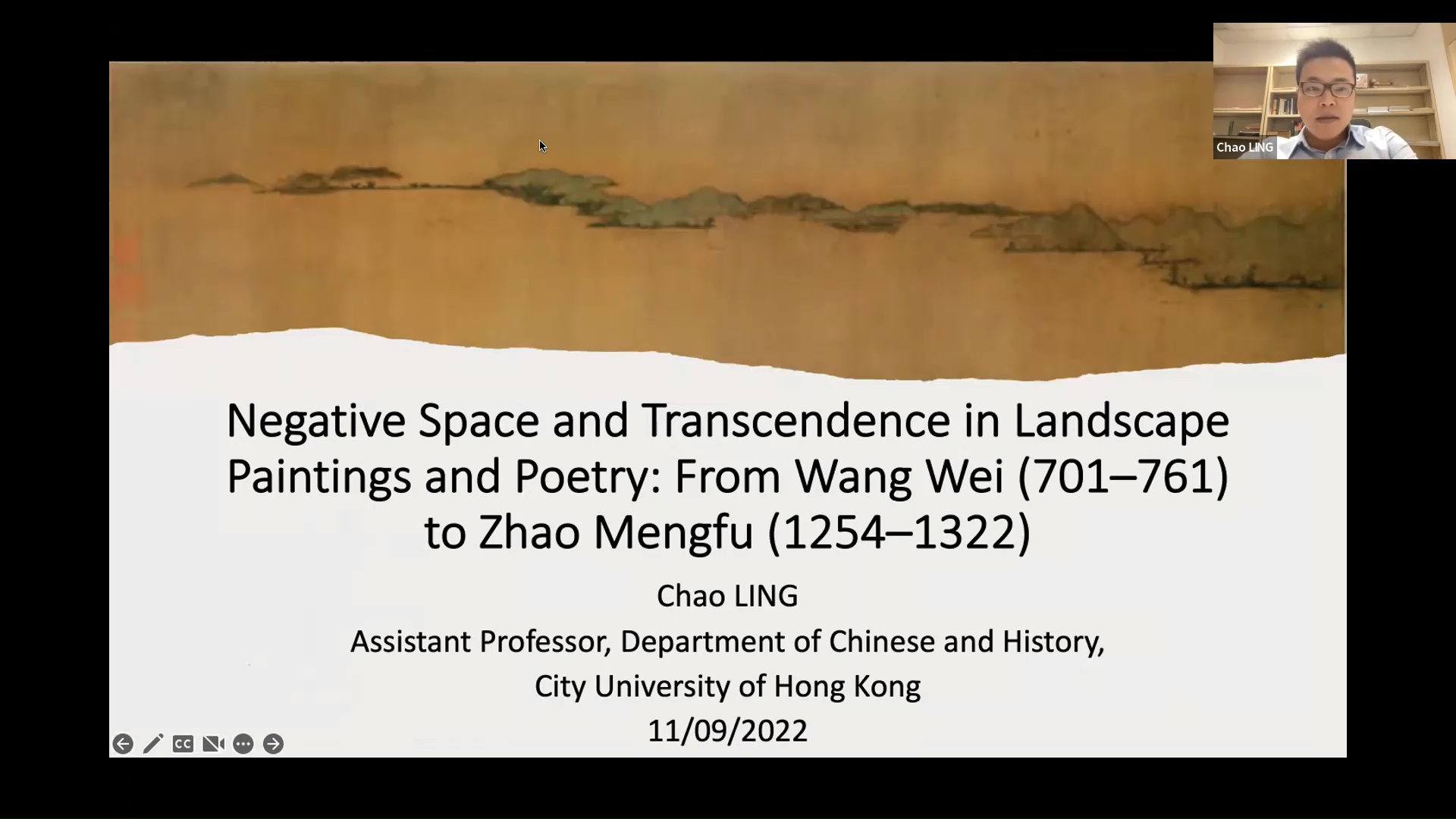
Negative Space and Transcendence in Landscape Paintings and Poetry: From Wang Wei (701–761) to Zhao Mengfu (1254–1322)
2022 | 86 mins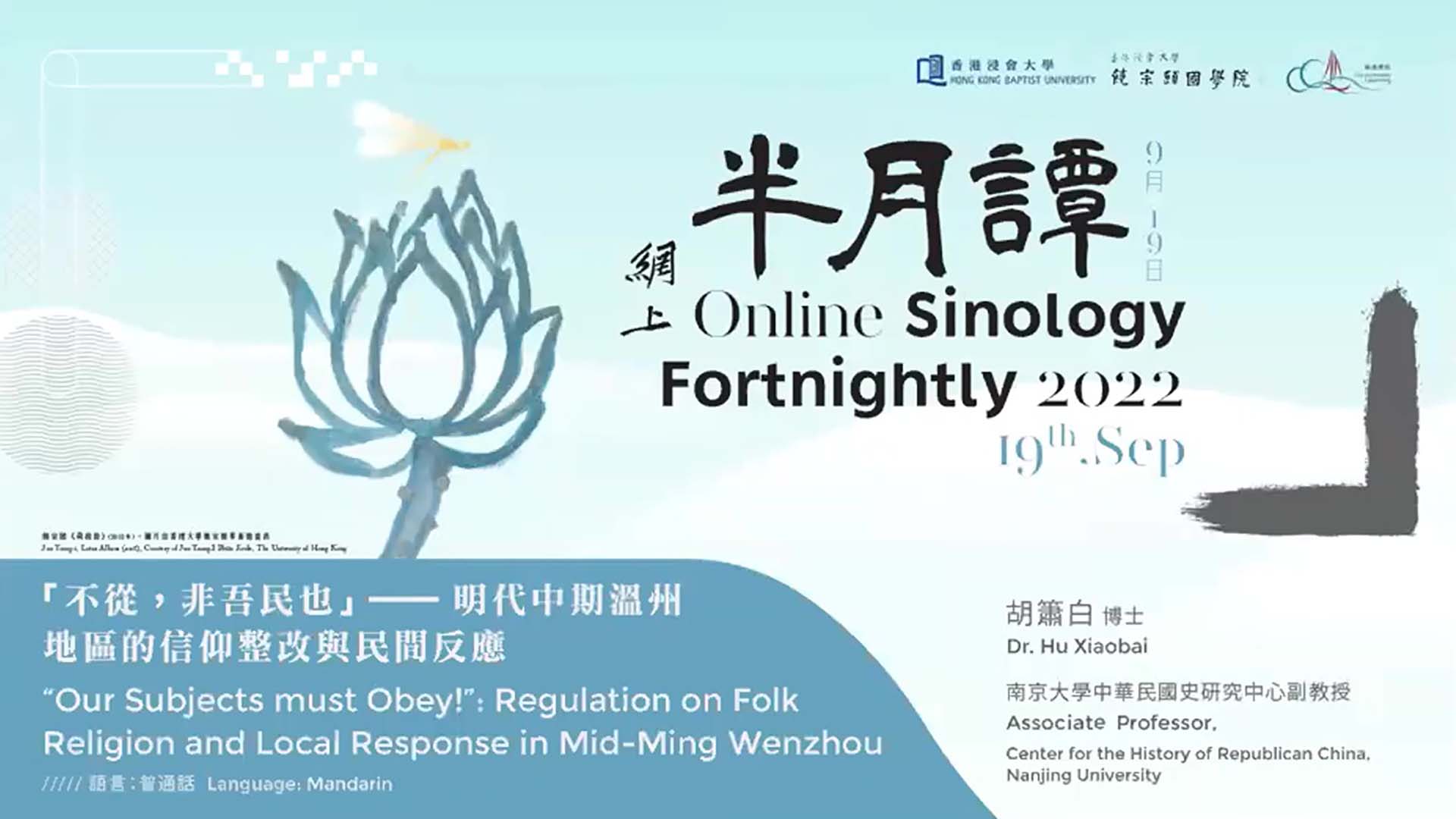
「不从,非吾民也」——明代中期温州地区的信仰整改与民间反应
2022 | 74 mins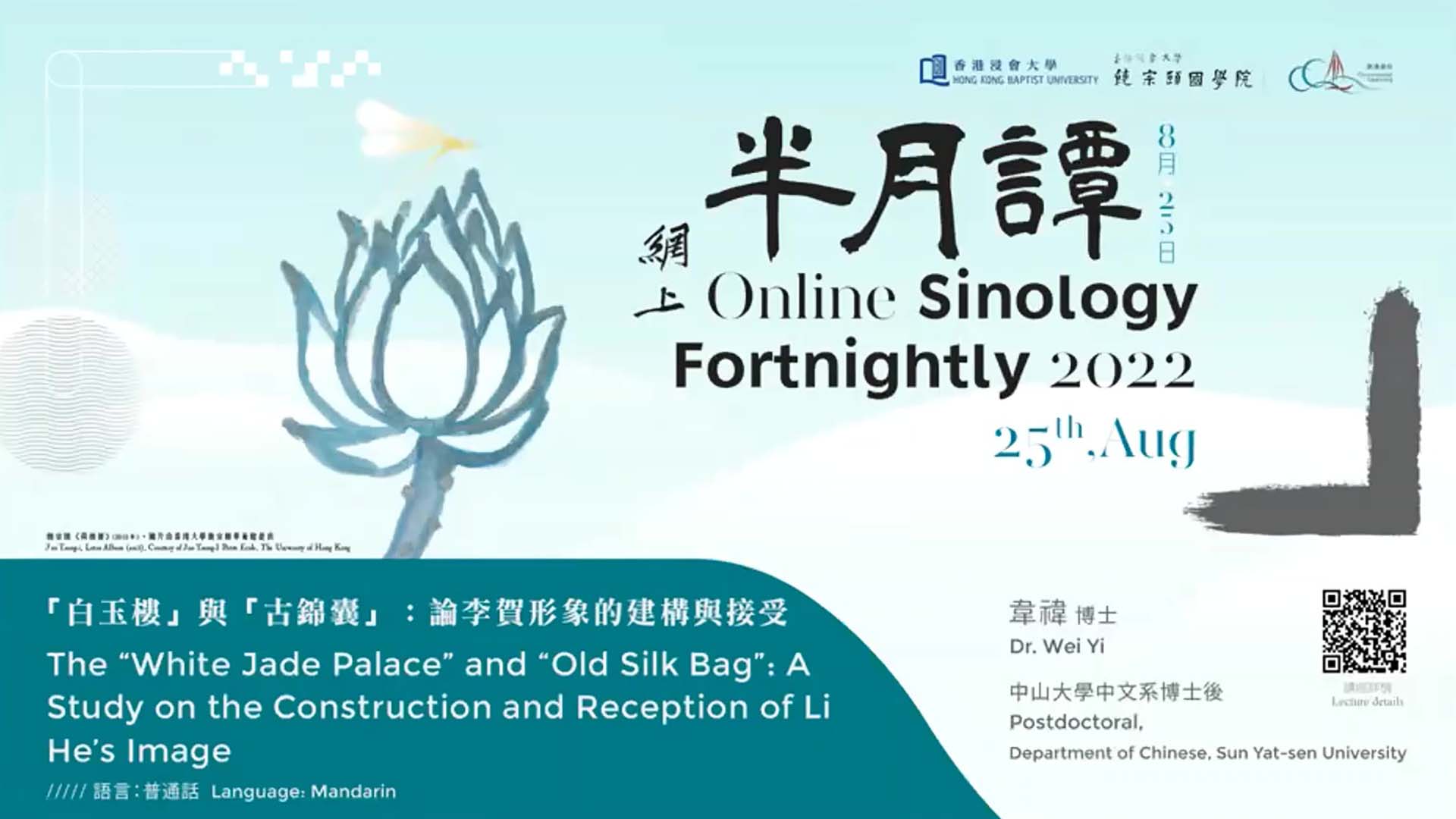
「白玉楼」与「古锦囊」:论李贺形象的建构与接受
2022 | 57 mins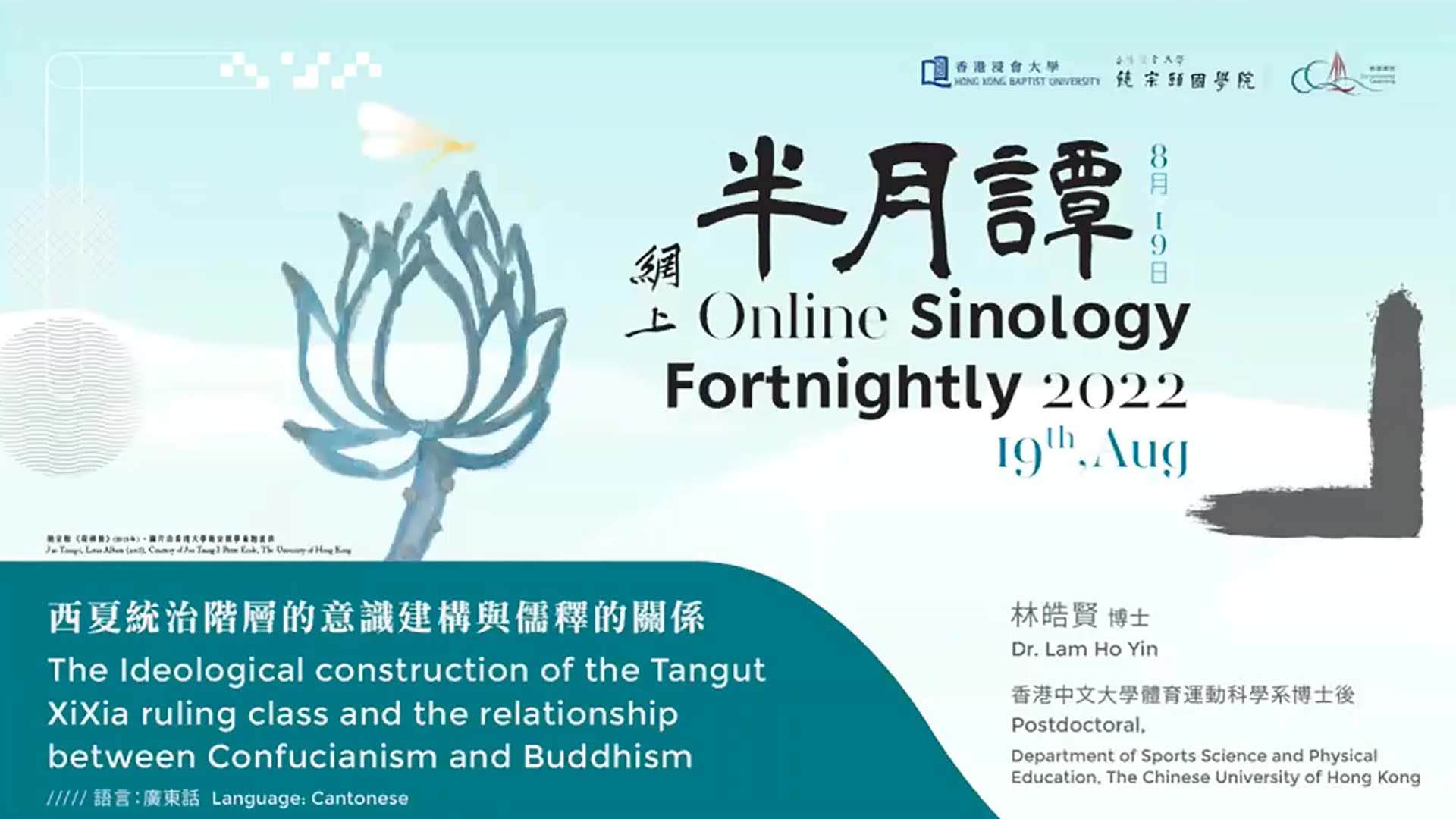
西夏統治階層的意識建構與儒釋的關係
2022 | 74 mins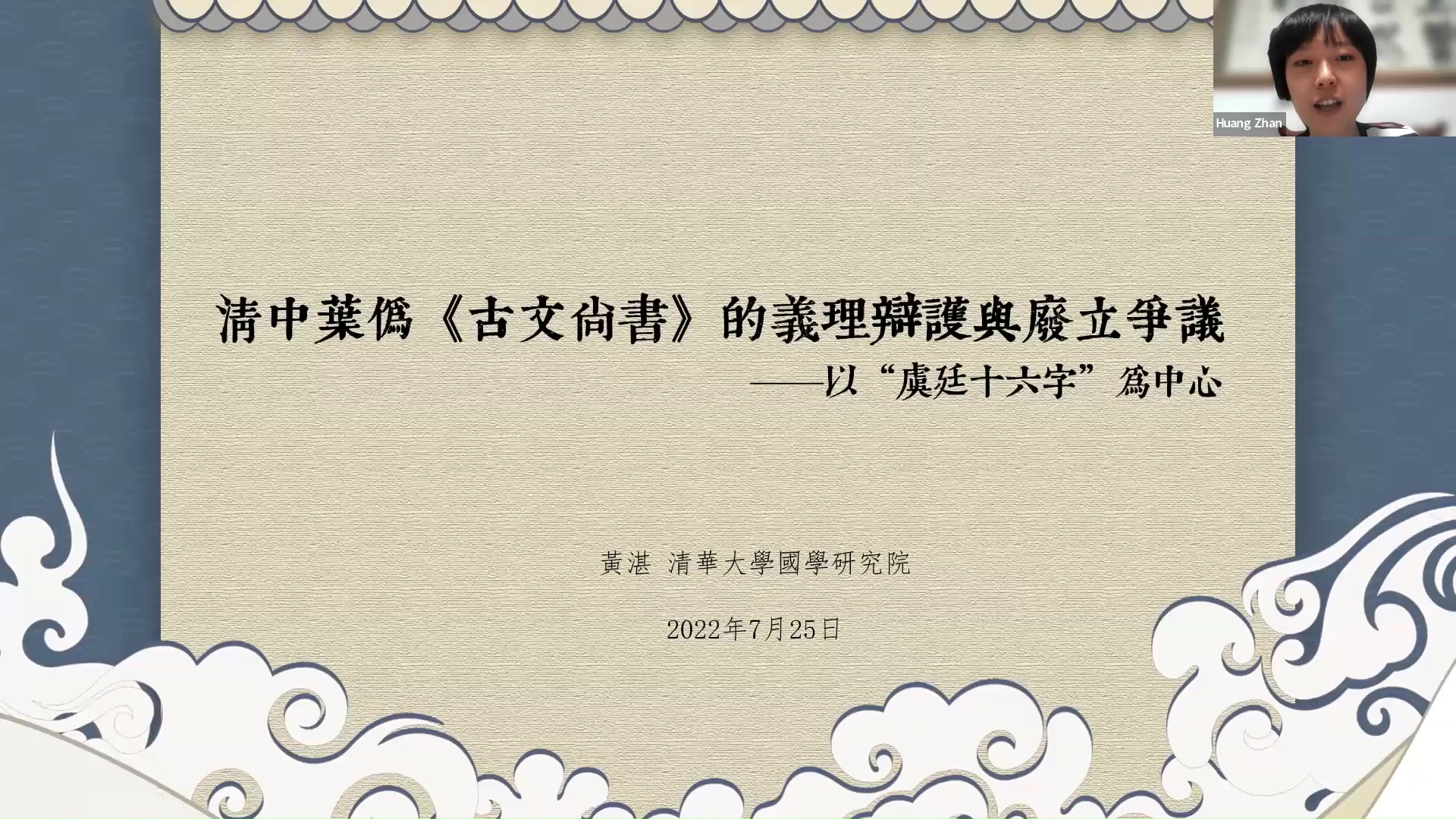
清中叶伪《古文尚书》的义理辩护与废立争议——以「虞廷十六字」为中心
2022 | 80 mins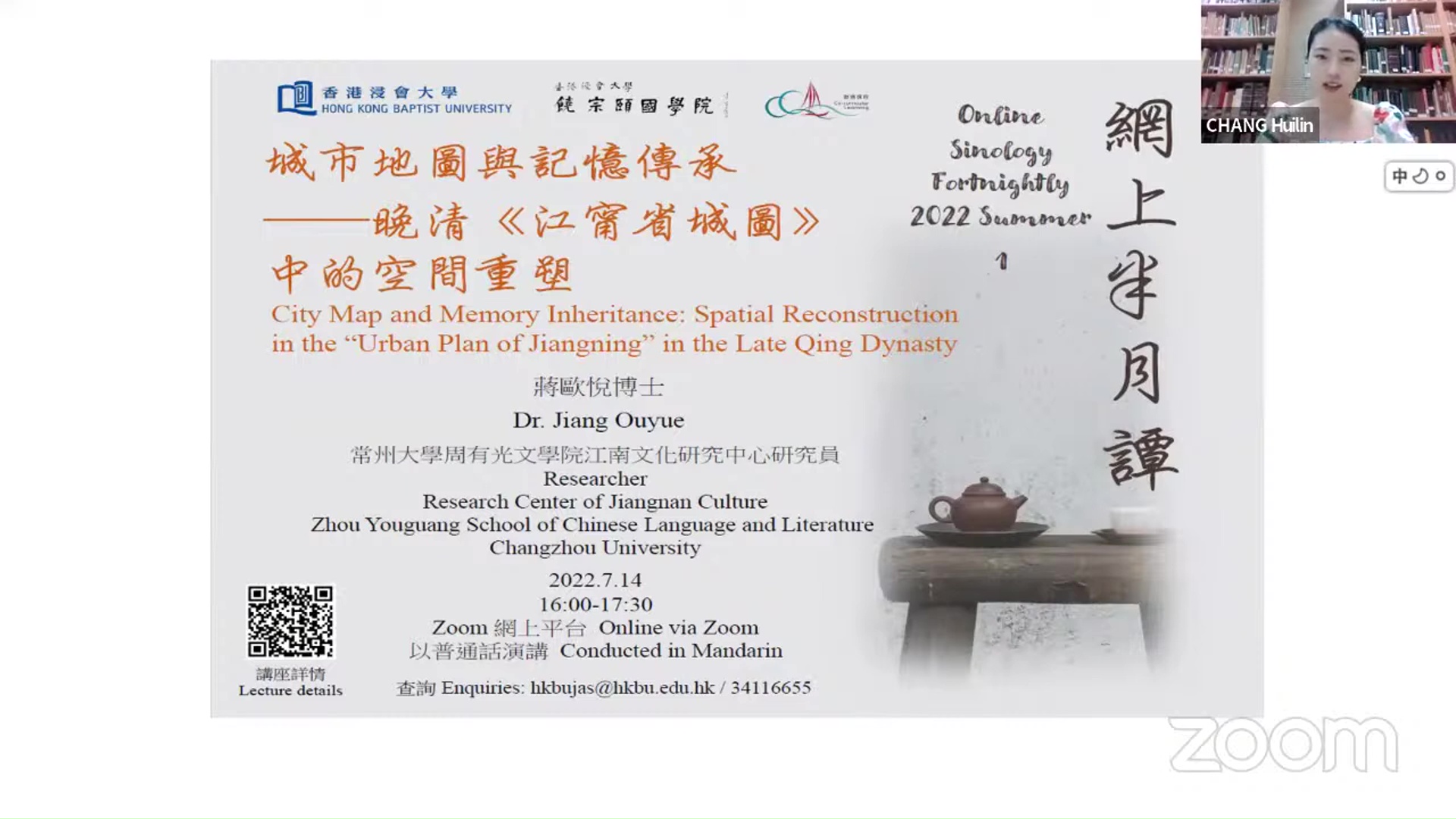
城市地图与记忆传承——晚清《江宁省城图》中的空间重塑
2022 | 73 mins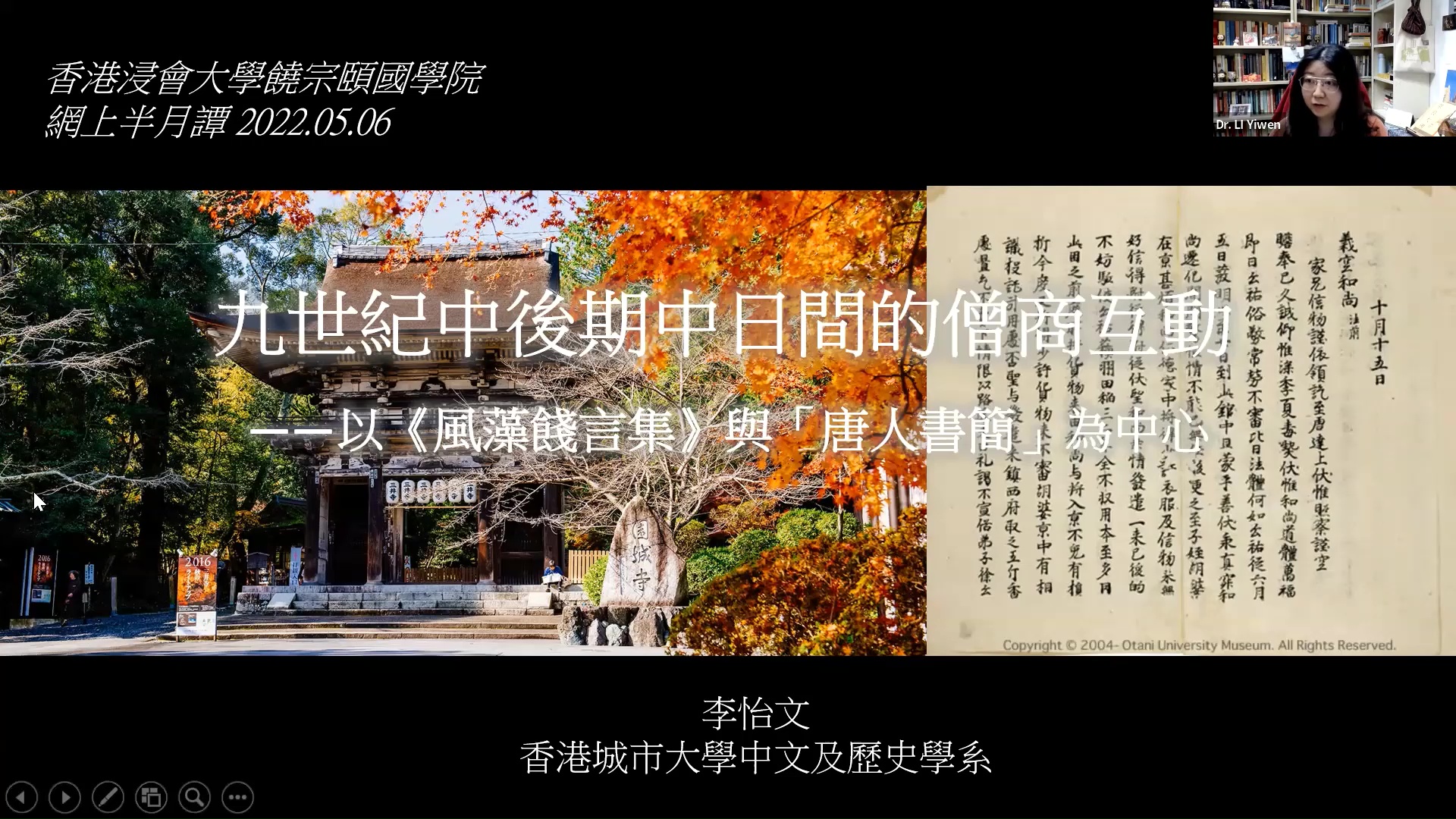
九世纪中后期中日间的僧商互动——以《风藻饯言集》与「唐人书简」为中心
2022 | 91 mins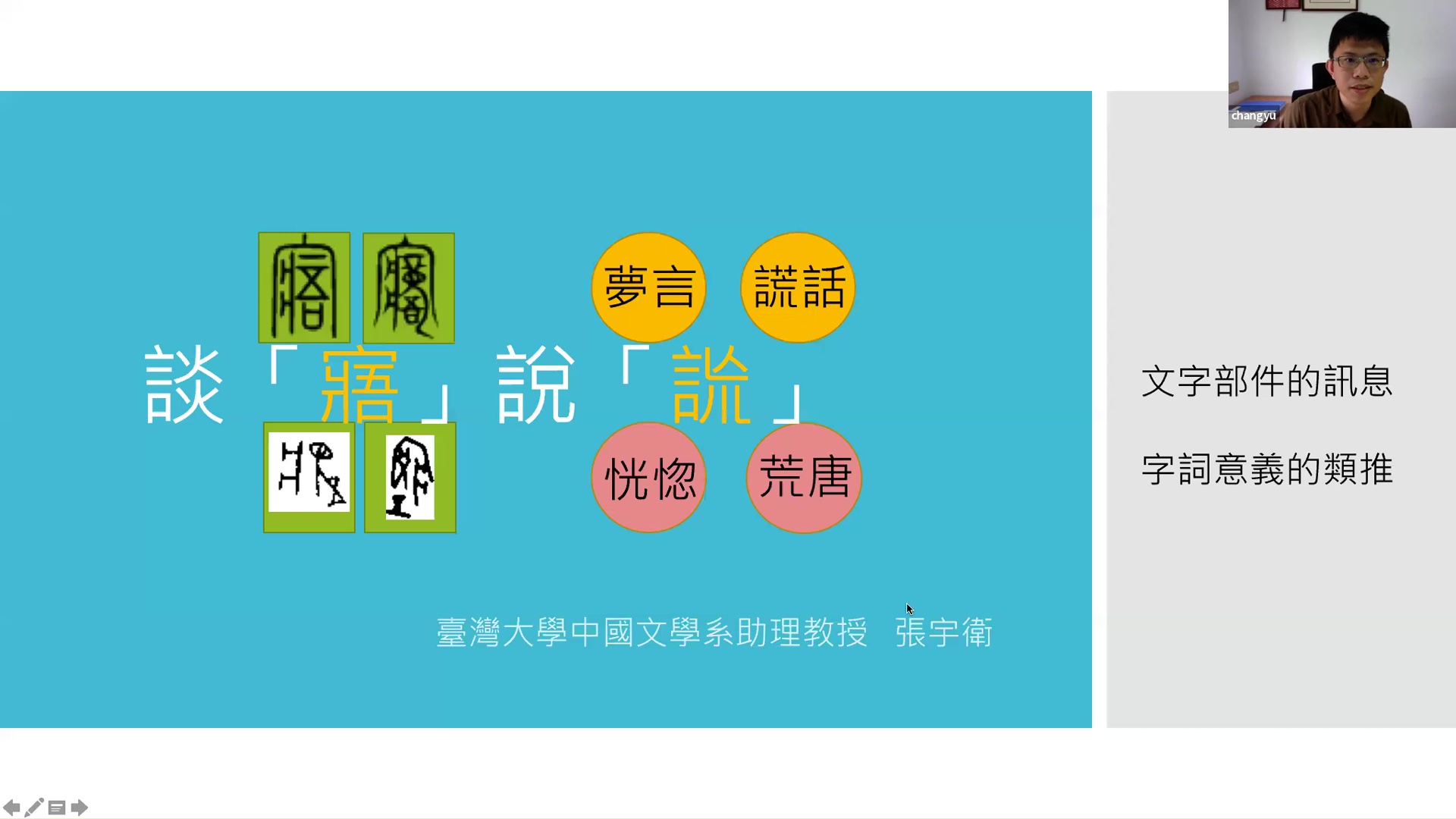
谈「寤」说「詤」
2022 | 76 mins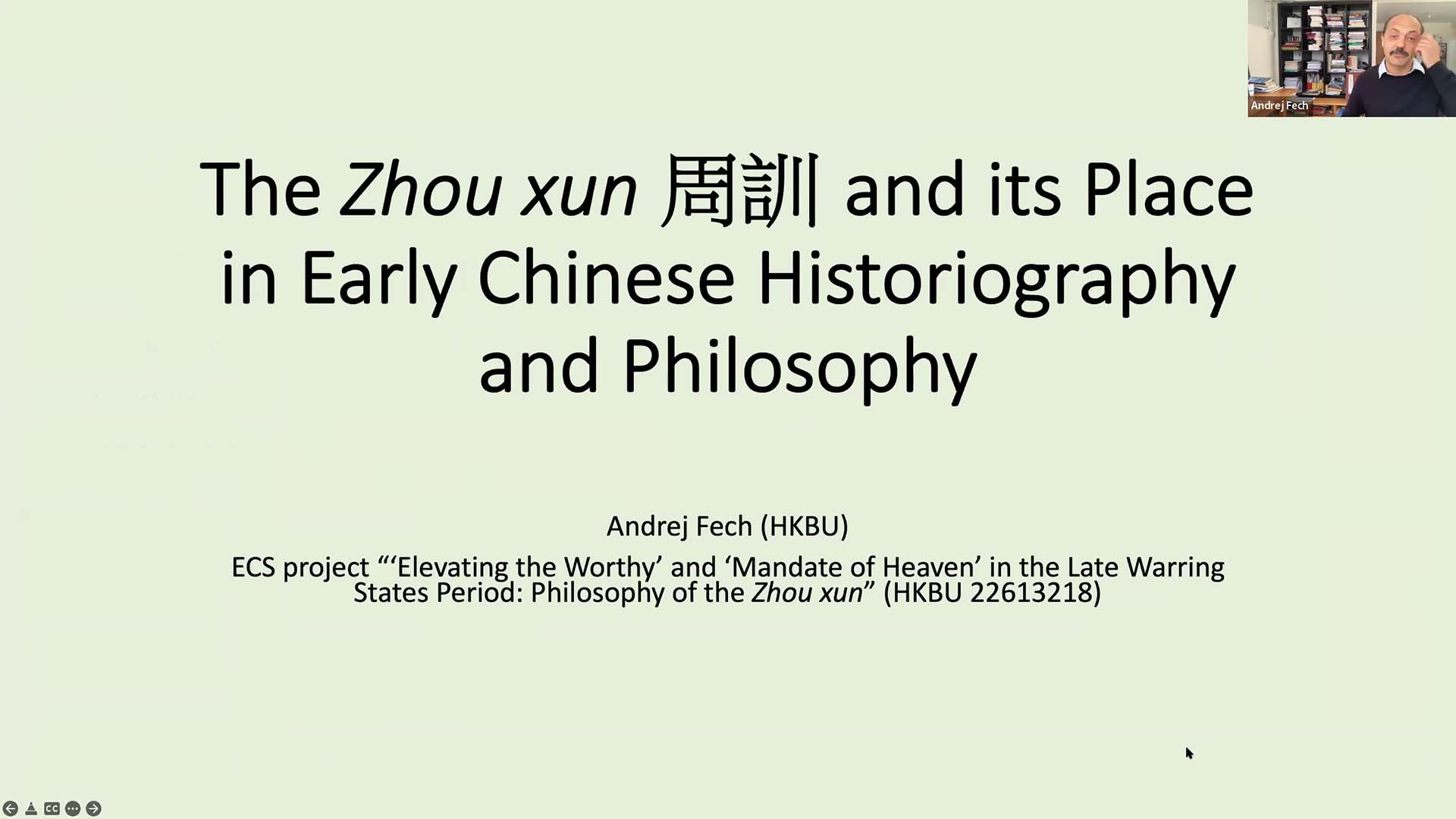
The Zhou xun and its Place in Early Chinese Historiography and Philosophy
2022 | 93 mins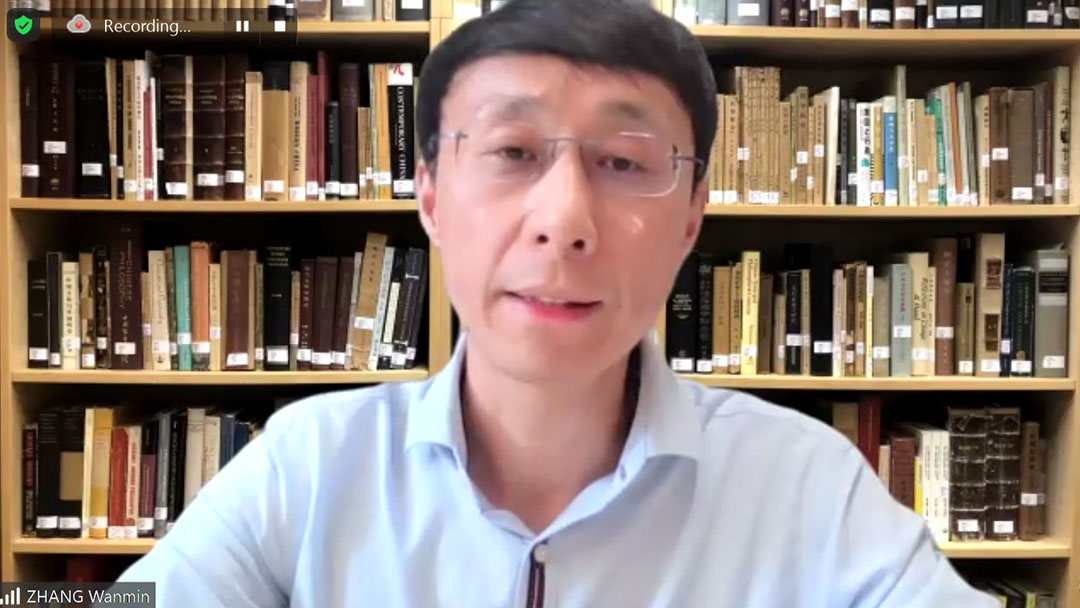
从经典诠释到阅读实践——朱熹的「淫诗」说
2021 | 98 mins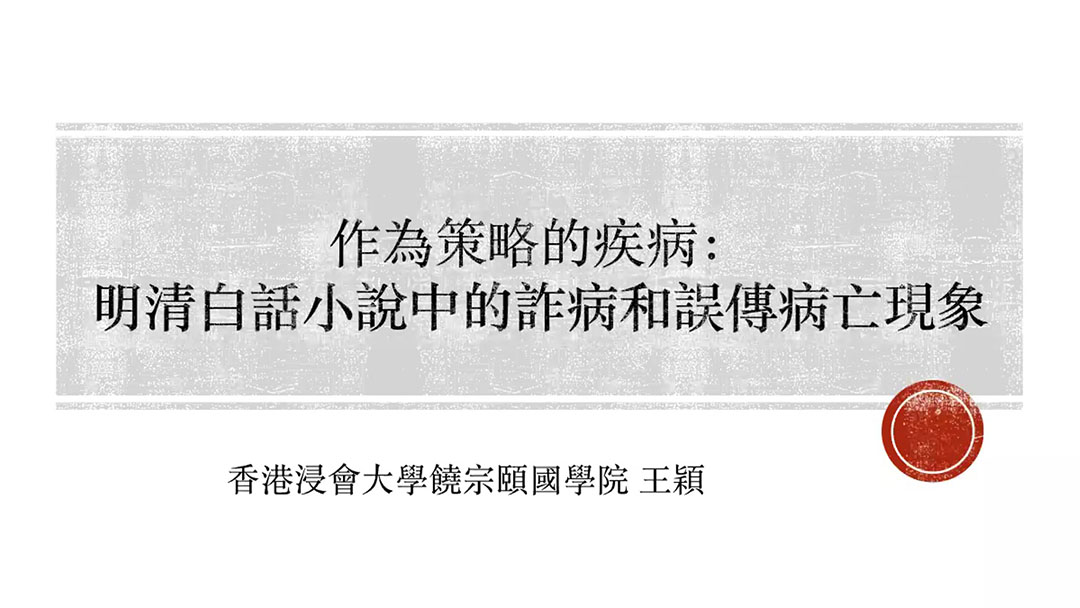
作为策略的疾病:明清白话小说中的诈病和误传病亡现象
2021 | 104 mins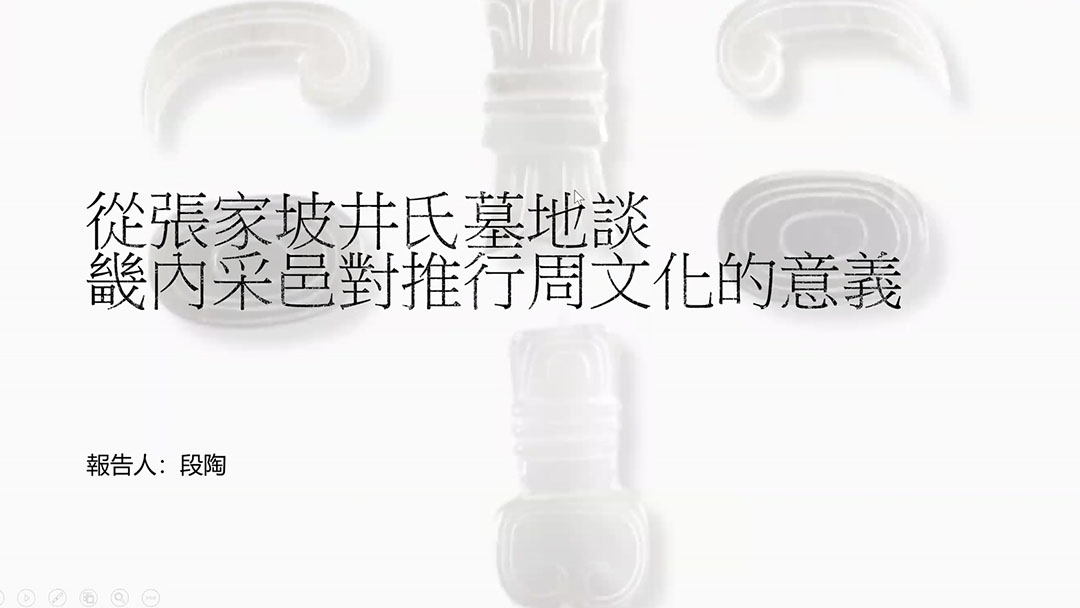
从张家坡井氏墓地谈畿内采邑对推行周文化的意义
2021 | 91 mins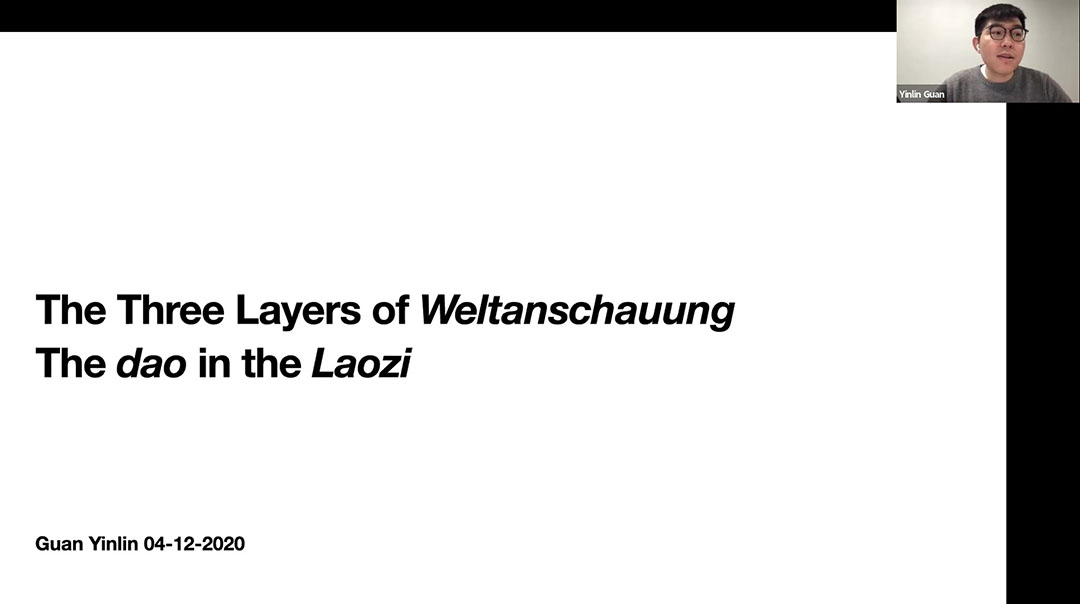
The Three Layers of Weltanschauung, the dao in the Laozi
2020 | 87 mins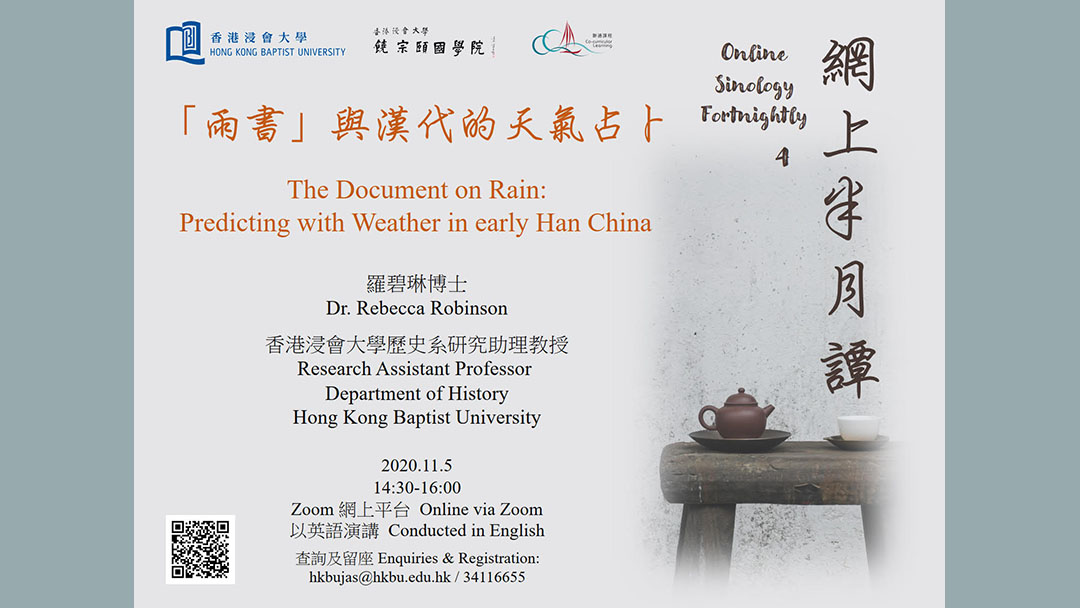
The Document on Rain: Predicting with Weather in early Han China
2020 | 89 mins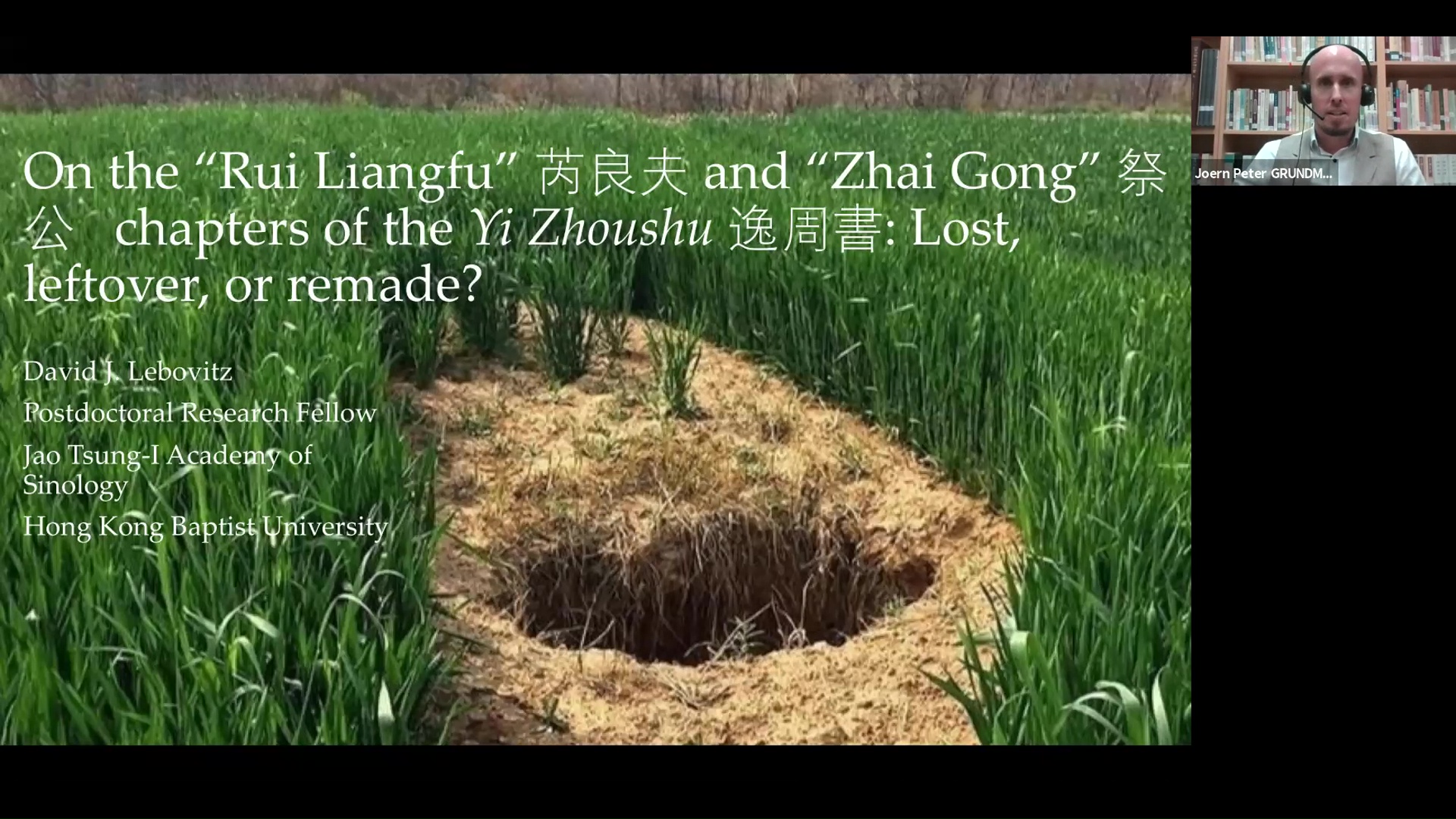
On the "Rui Liangfu" and "Zhai Gong" chapters of the Yi Zhoushu: Lost, leftover, or remade?
2020 | 89 mins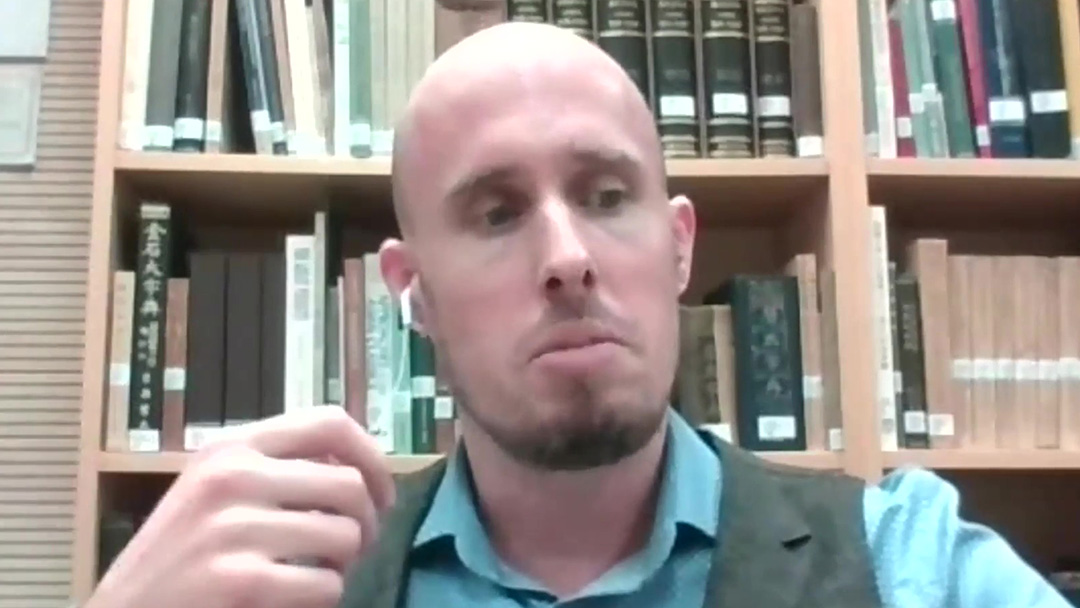
Discussing the Use of Springs and Autumns Covenant Formulae in the "Pan Geng" Chapter from the Book of Documents
2020 | 92 mins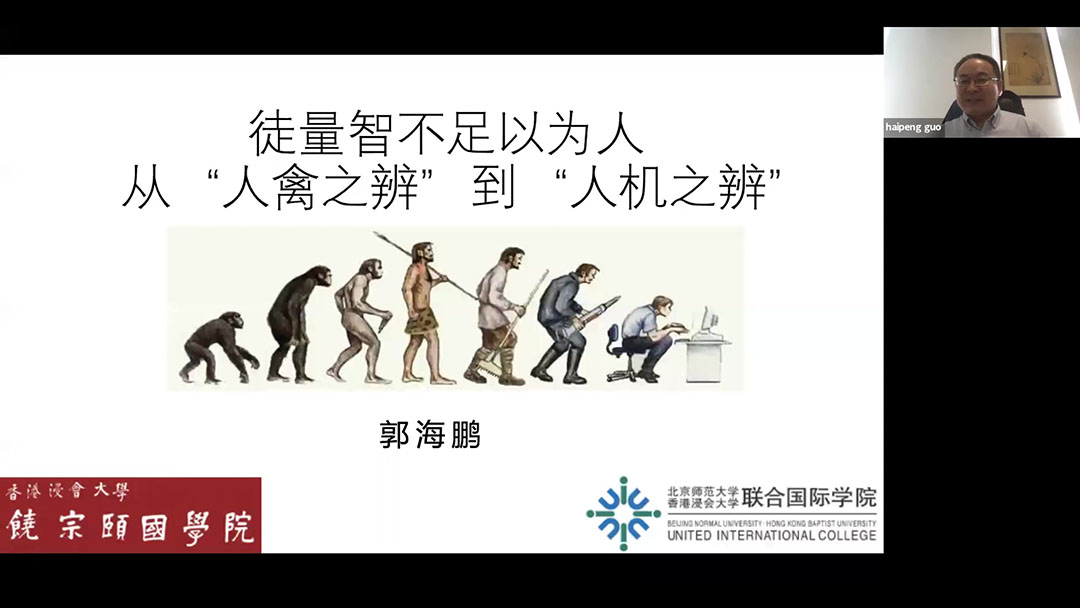
徒量智不足以为人——从人禽之辨到人机之辨
2020 | 90 mins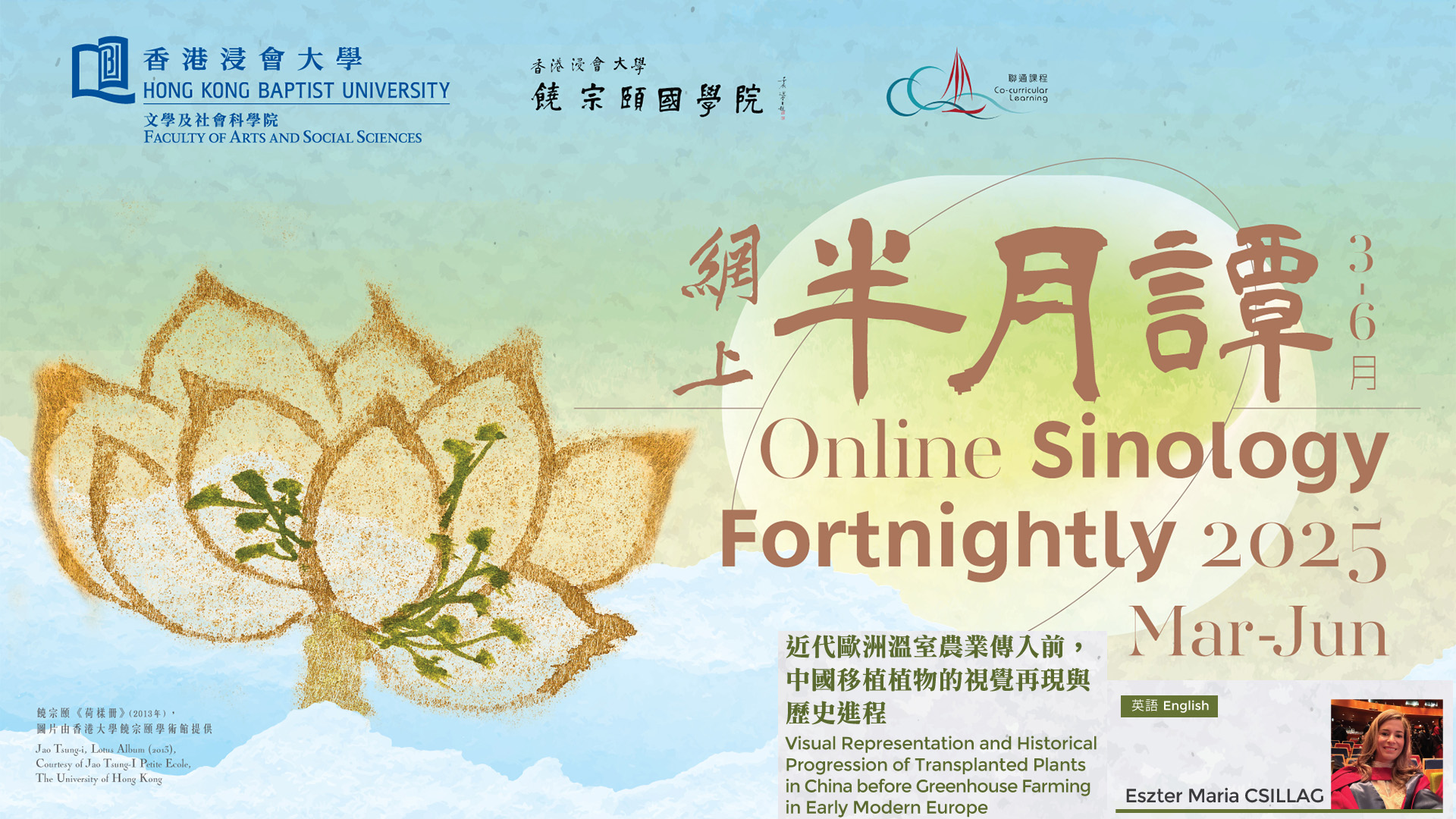
Visual Representation and Historical Progression of Transplanted Plants in China before Greenhouse Farming in Early Modern Europe
2025 | 61 mins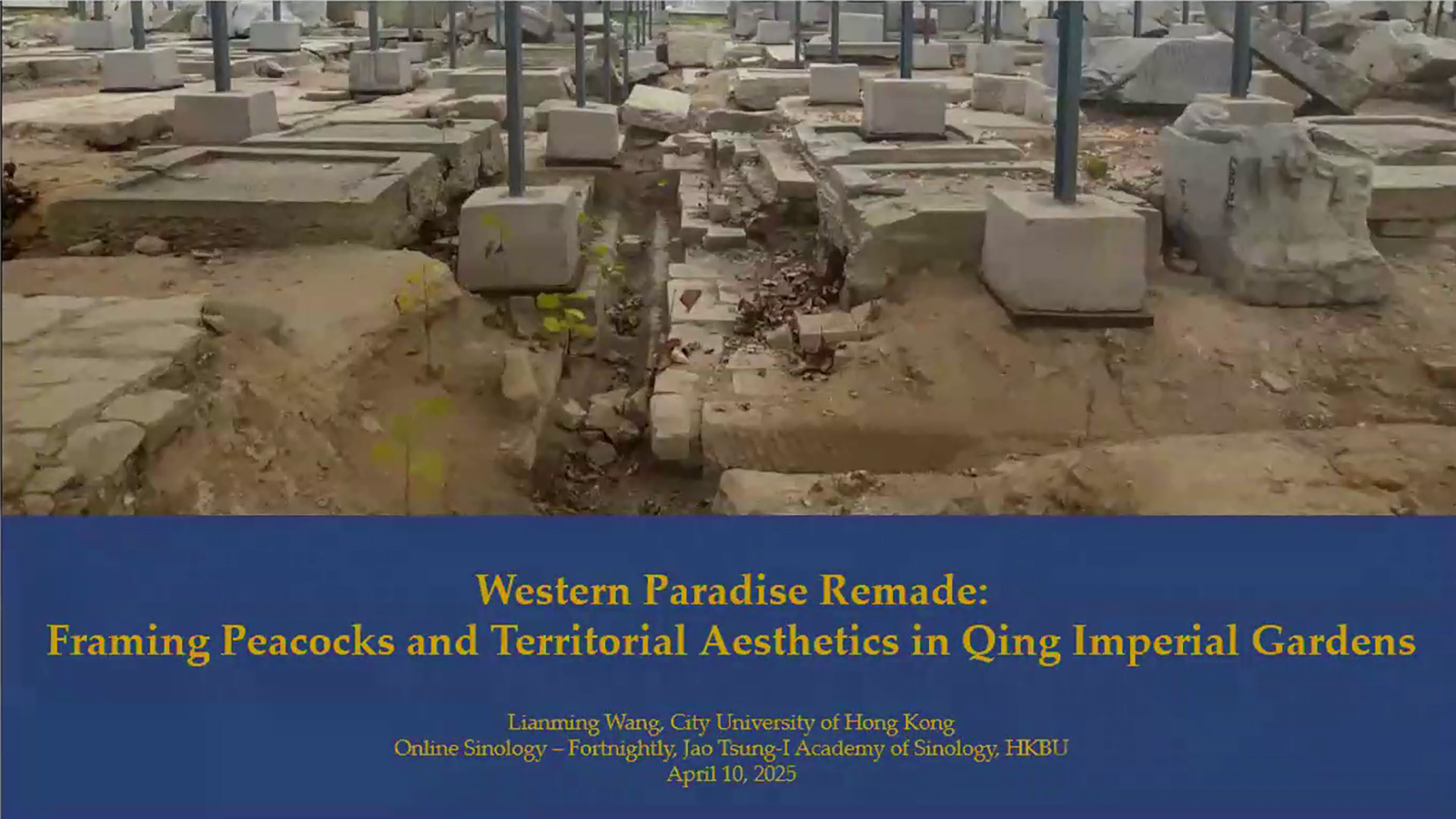
Western Paradise Remade: Framing Peacocks and Territorial Aesthetics in Qing Imperial Gardens
2025 | 62 mins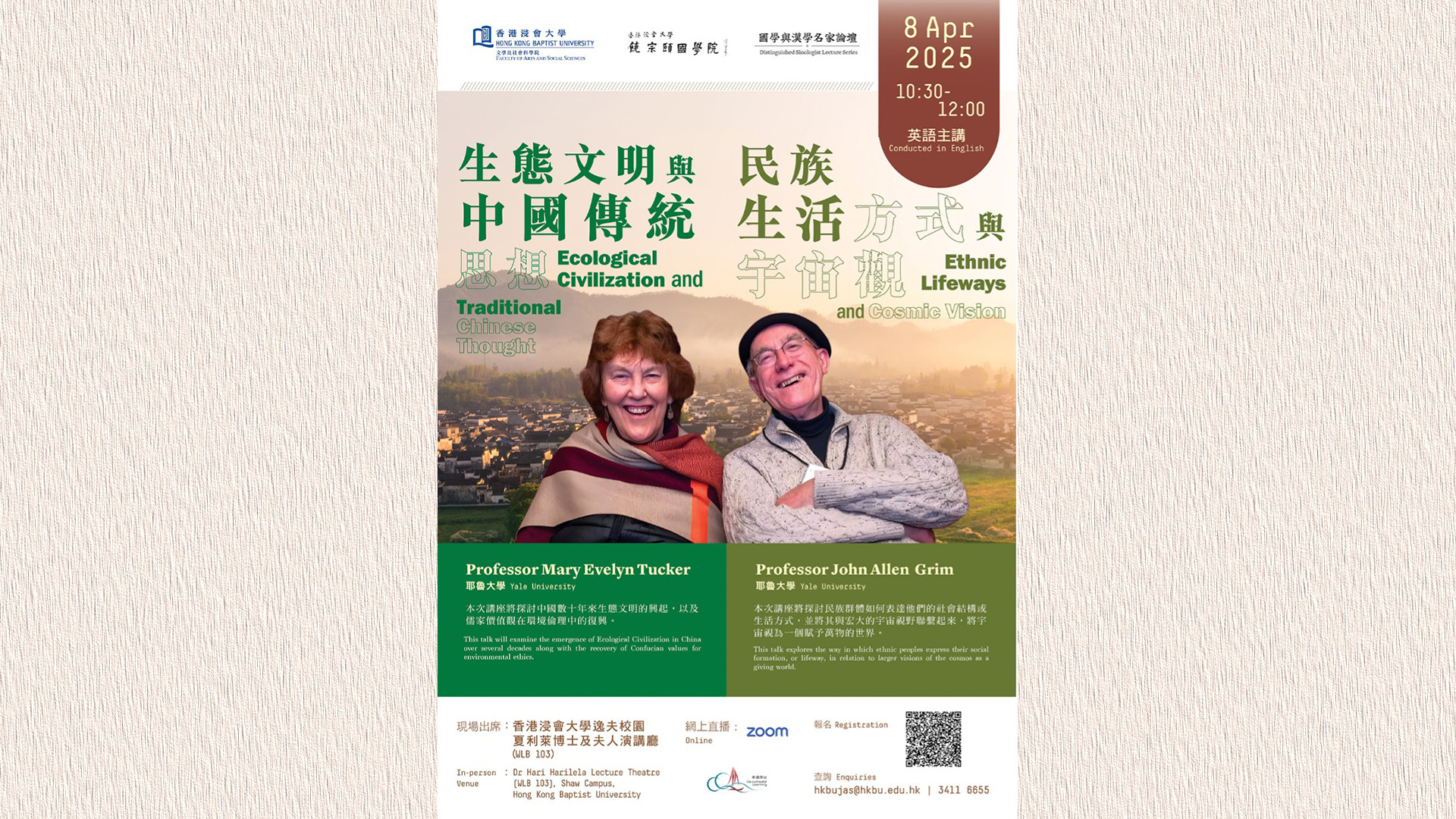
Ethnic Lifeways and Cosmic Vision
2025 | 67 mins
Ecological Civilization and Traditional Chinese Thought
2025 | 29 mins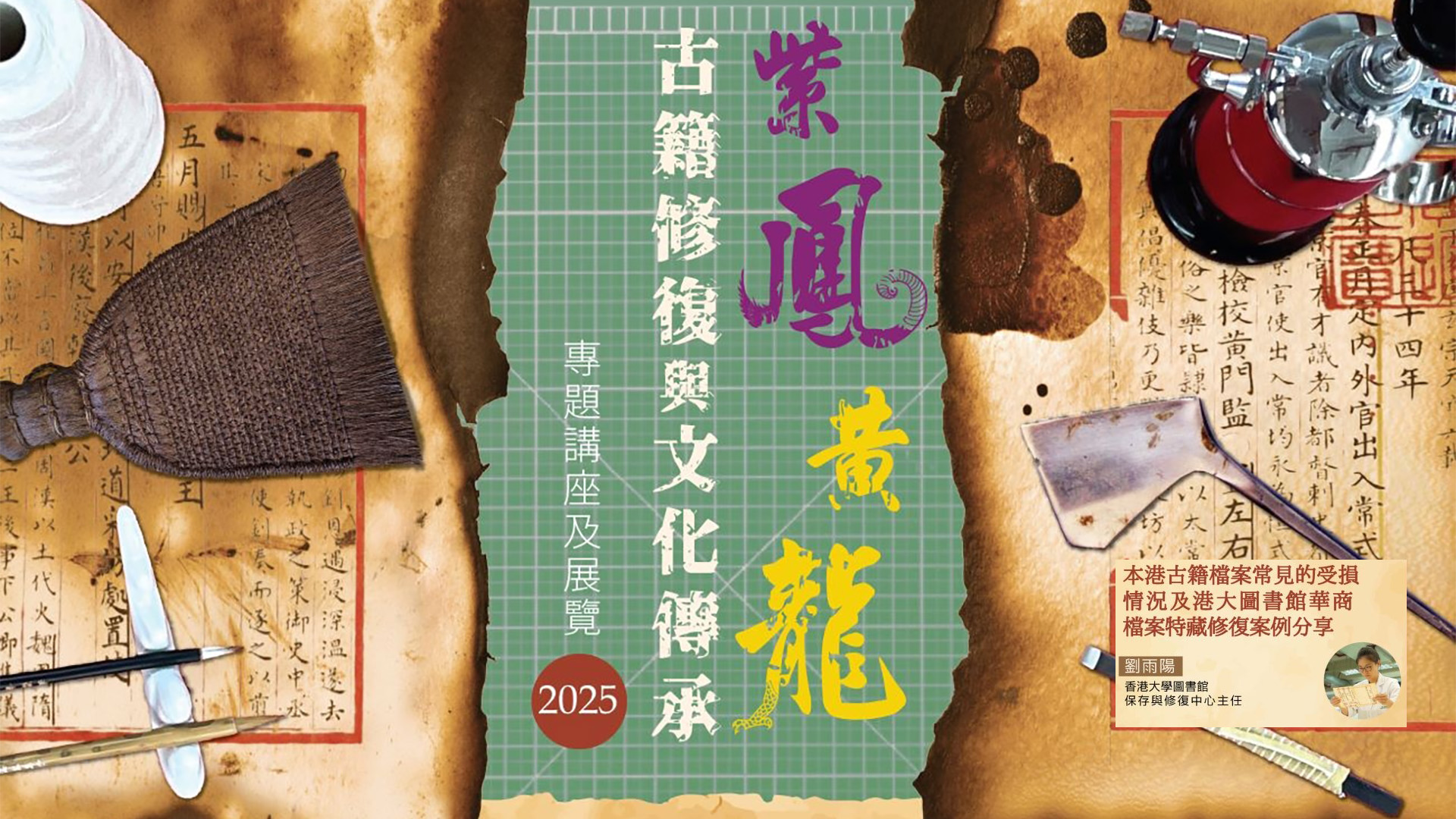
本港古籍檔案常見的受損情況及港大圖書館華商檔案特藏修復案例分享
2025 | 53 mins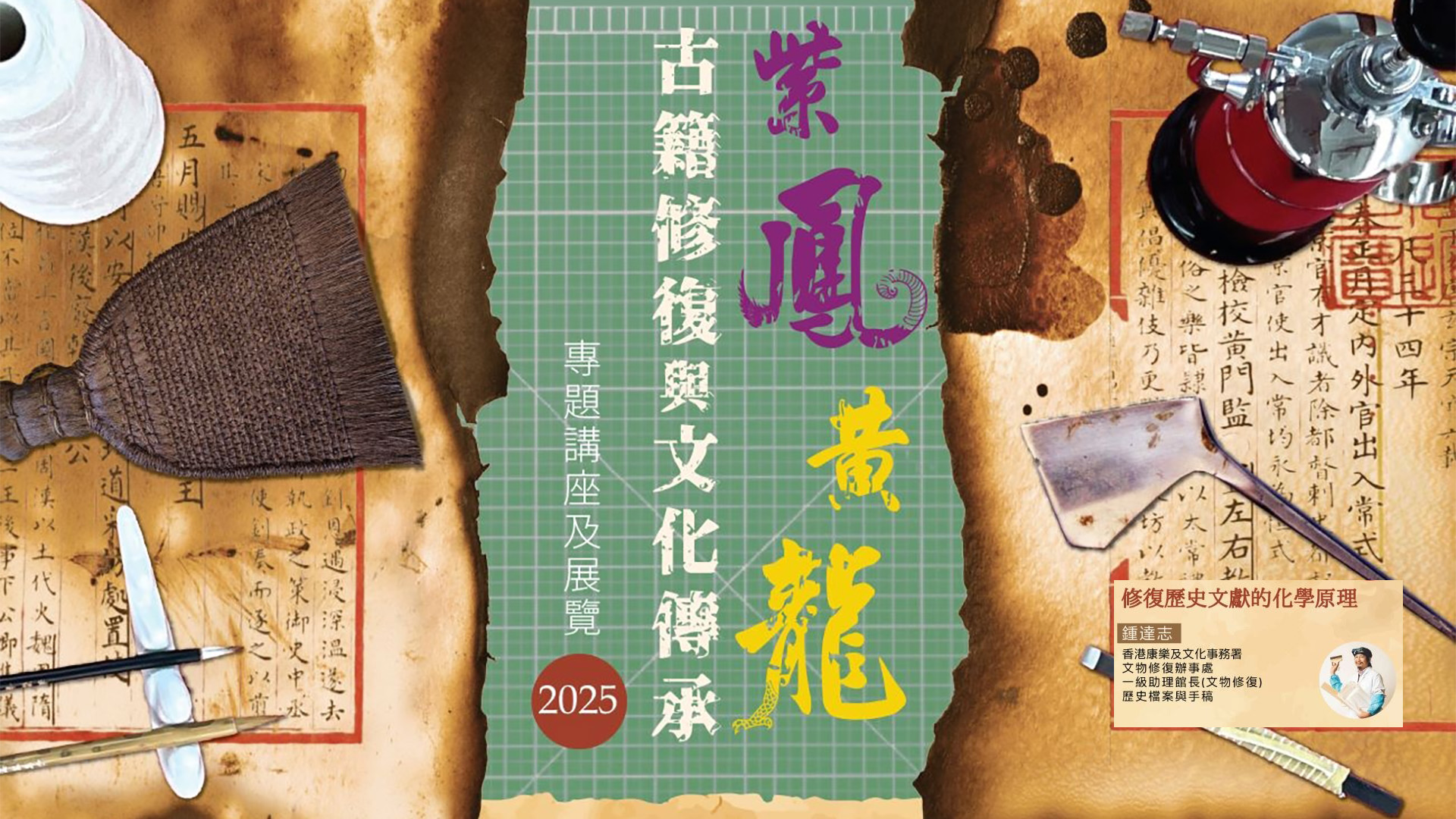
修復歷史文獻的化學原理
2025 | 55 mins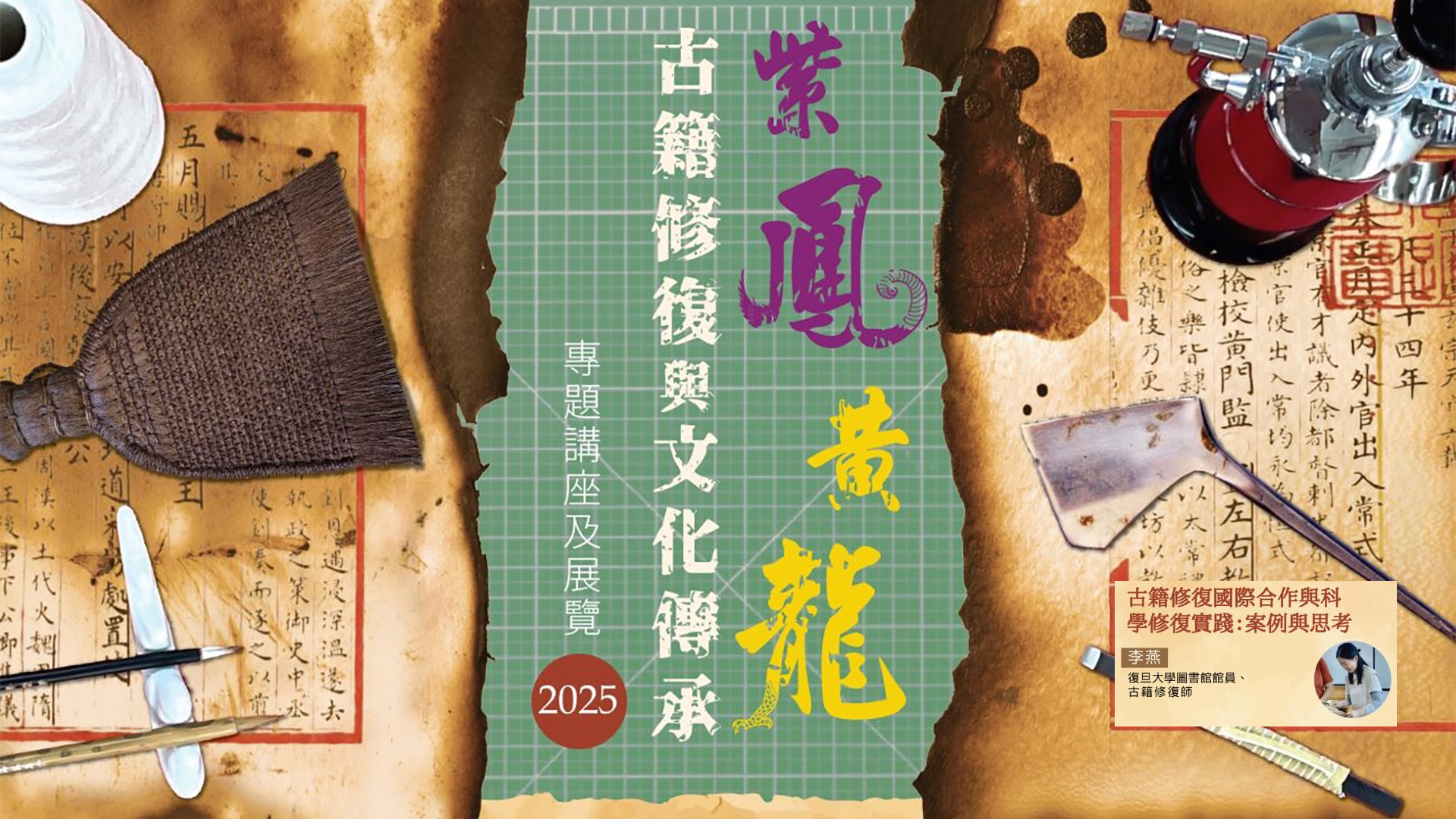
古籍修复国际合作与科学修复实践:案例与思考
2025 | 86 mins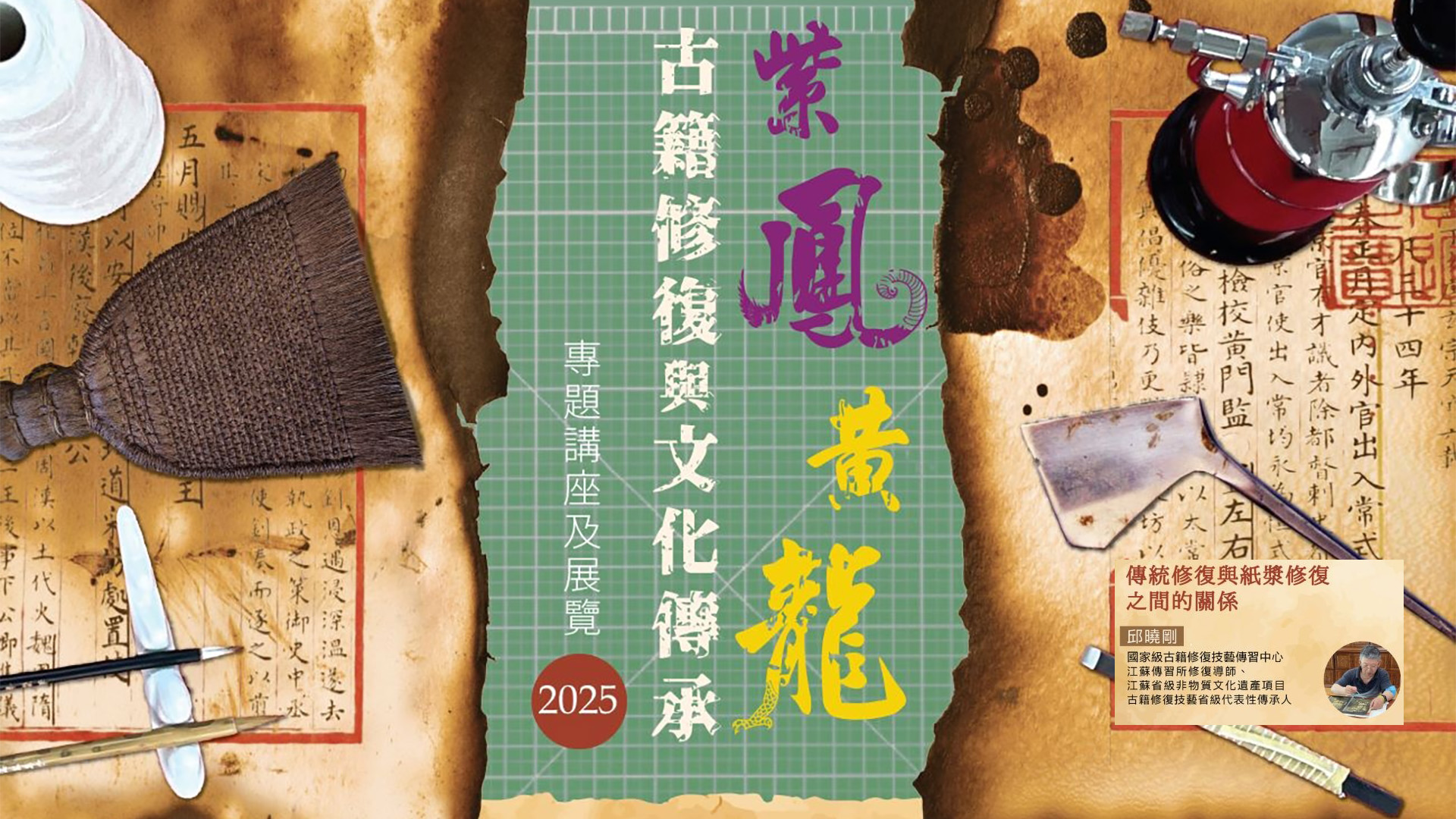
传统修复与纸浆修复之间的关系
2025 | 83 mins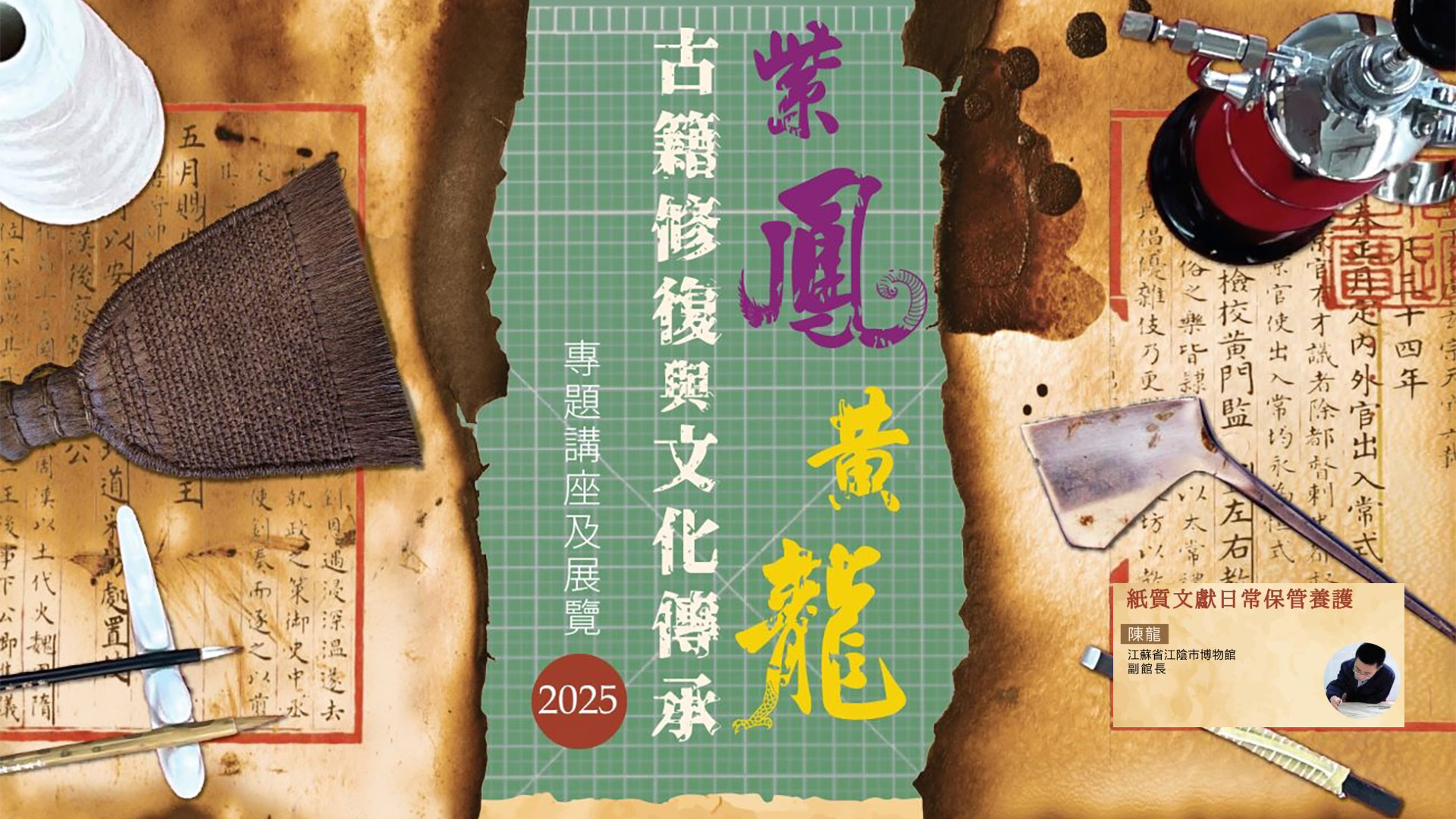
纸质文献日常保管养护
2025 | 121 mins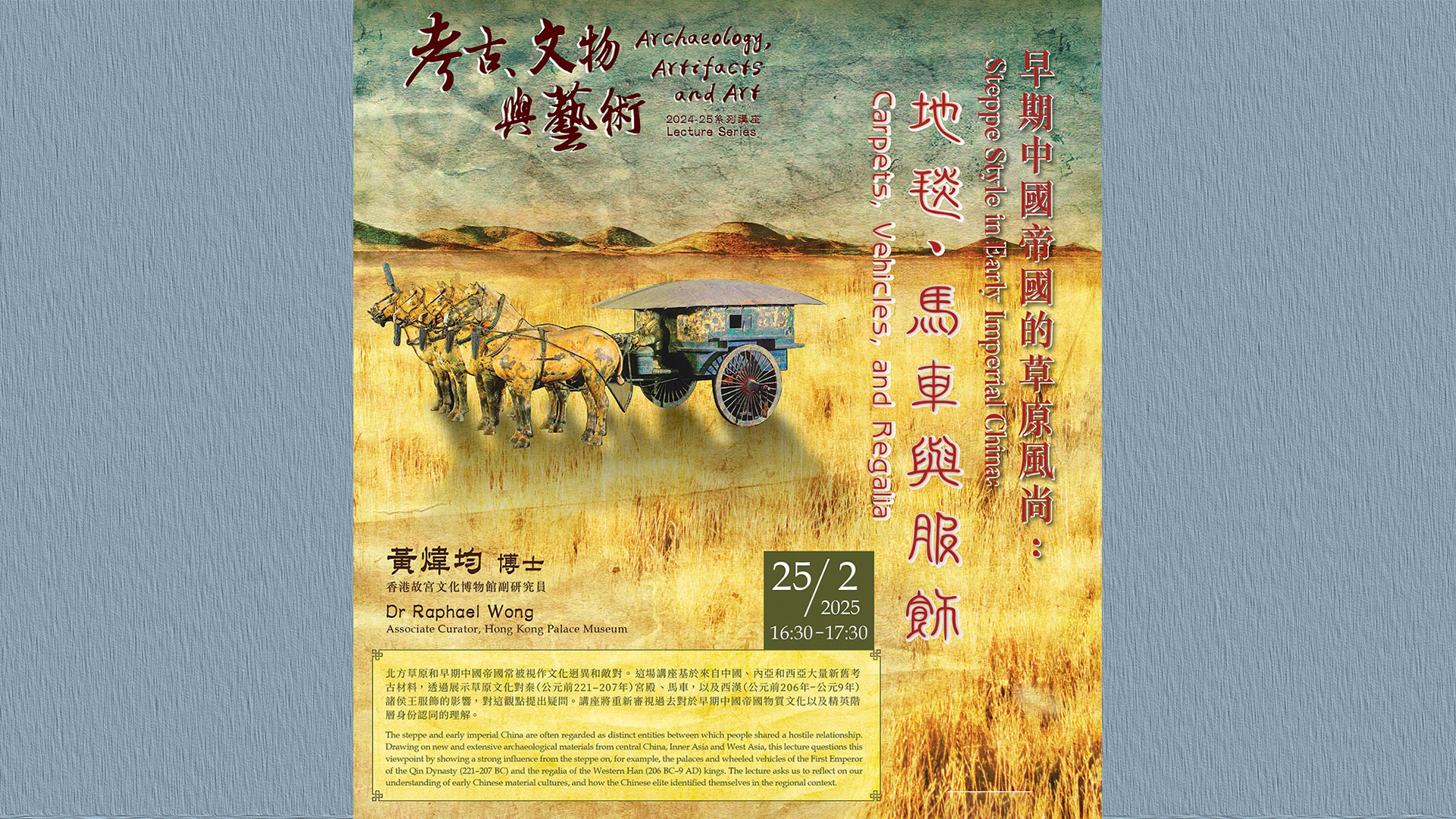
Steppe Style in Early Imperial China: Carpets, Vehicles, and Regalia
2025 | 69 mins






